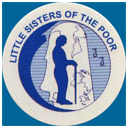In the Supreme Court, that is. How do I know this? OK, let’s back up.
In the biggest decision of its 2013-2014 term, the Supreme Court decided 5-4 that a for-profit corporation which objects to provisions of a federal law as impairing its religious freedom is entitled to an accommodation under the 1993 Religious Freedom Restoration Act (RFRA). The case at hand involved the Affordable Care Act’s mandate that employee health insurance plans provide women with free contraceptive care.
Under rules developed by the Department of Health and Human Services, strictly religious organizations like churches were exempted from the mandate. The idea was that such women who worked for such organizations were likely to belong to the religious body in question and in any event could be expected to embrace or at least conform to its beliefs and practices.
By contrast, religiously affiliated non-profits like the University of Notre Dame and the Little Sisters of the Poor (an order of nuns that runs a couple of dozen nursing homes) received an accommodation, under which they are supposed to fill out a form for the government stating that they object to the contraception mandate. The government will then tell their insurance company to provide their women employees with the free coverage at the company’s expense. The idea is that employees of such non-profits cannot be expected to hew to the religious principles of the religious body with which they are affiliated.
In Hobby Lobby, the Court told the Obama administration to give a “closely held” for-profit that demonstrates a bona fide religious commitment the same accommodation it provides to a religious non-profit. In his majority opinion, Justice Samuel Alito left open the question of whether the accommodation was itself sufficient. Faced with a difference of opinion at the appellate level, the Court last Friday agreed to take up that question.
The Little Sisters, Notre Dame, et al. claim that filling out the government waiver makes them responsible for — or as Aristotle and Aquinas would have said, the final cause of — practices they find religiously intolerable. What they want is the complete exemption afforded to churches.
They won’t get it.
RFRA says that religious objections to a federal law can be overturned only if the government has a compelling interest in doing so. In Hobby Lobby, Justice Anthony Kennedy became the majority’s crucial fifth vote with the help of a concurrence declaring that indeed to be the case. “There are many medical conditions for which pregnancy is contraindicated,” Kennedy wrote. “It is important to confirm that a premise of the Court’s opinion is its assumption that the HHS regulation here at issue furthers a legitimate and compelling interest in the health of female employees.”
And the Kennedy concurrence finds the accommodation for religious non-profits to be a valid means of reconciling that compelling interest with religious liberty: “In these cases the means to reconcile those two priorities are at hand in the existing accommodation the Government has designed, identified, and used for circumstances closely parallel to those presented here.”
Just as Kennedy stuck with his earlier positions on gay rights and voted in favor of a constitutional right to same-sex marriage last June, so he will stick with these dicta and provide the crucial fifth vote to uphold the Obama administration’s non- (and for-) profit accommodation of the contraception mandate.






